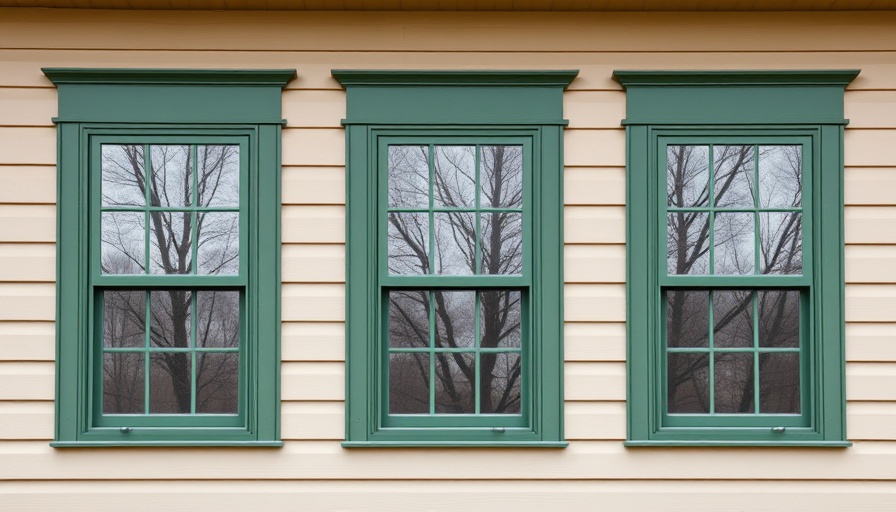
Understanding the Lifespan of Your Windows
Windows are often considered one of the most important elements of a building, providing protection from the elements while allowing natural light to flood in. Over time, however, windows can succumb to age, wear, and external factors. For small business owners and managers, understanding when and why to replace windows can enhance not only the aesthetic value of your property but also its energy efficiency and overall appeal.
Top Reasons for Replacing Windows
While considering a window replacement, it is vital to recognize the pivotal reasons behind the need for new windows:
- Age: Windows have a natural lifespan that can range from 15 to 30 years, depending on material and maintenance. As windows age, they may become less effective at keeping out cold or heat.
- Energy Efficiency: Replacing old windows with modern, energy-efficient alternatives can lead to significant savings on energy bills. New windows equipped with double or triple-glazing help insulate the building.
- Damage: Physical damage from storms or wear and tear can compromise window integrity. Cracks and broken seals not only decrease efficiency but also pose security risks.
- Noise Reduction: Newer windows are often designed to reduce external noise, making for a more conducive working environment in noisy urban settings.
- Aesthetic Appeal: Old, worn-out windows can detract from the overall appearance of a business, affecting first impressions. Modern windows can enhance the visual appeal of a building, improving its marketability.
The Financial Equation: Costs vs. Benefits
Replacing windows is an investment. The cost can vary widely based on the type of windows, the size of your building, and installation charges. On average, business owners can expect to spend anywhere from $300 to $1,000 per window installed. However, the initial outlay could be offset by long-term savings through improved energy efficiency and reduced maintenance costs.
Making the Decision: How Many Windows to Replace?
The decision to replace a single window versus several can be complex. It often comes down to assessing which windows are most problematic and the potential returns on investment. If multiple windows are old, it may be more cost-effective to replace them all at once rather than piecemeal replacements over several years.
Tips for Selecting New Windows
Choosing the right windows is as important as deciding to replace them. Factors to consider include:
- Material: Options include vinyl, wood, aluminum, and fiberglass, each offering unique benefits.
- Energy Ratings: Look for windows that are rated for low thermal transmittance to ensure energy efficiency.
- Warranty: A robust warranty can provide peace of mind and safeguard against future expenses.
Future Trends: Eco-Friendly Windows
As sustainability continues to be a focal point in consumer choices, eco-friendly windows are gaining traction. These windows are made from sustainable materials or contain features to improve energy efficiency. Investing in eco-friendly options may not only appeal to environmentally conscious consumers but can also align with advancing energy regulations.
Long-Term Value: Beyond Just Windows
Replacing windows does more than just improve the physical structure of a building. It can lead to increased property value and improved workplace satisfaction for employees. New windows potentially reduce energy costs, lower maintenance expenses, and enhance employee productivity in a brighter, more enticing workspace.
Conclusion: Your Next Steps
As you assess your business’s window needs, consider consulting with a professional who can provide tailored advice based on the specific characteristics of your building. In an era where aesthetic appeal and energy efficiency go hand in hand, taking steps to analyze and replace old windows could be a pivotal decision for enhancing your business environment.
If you're ready to take the plunge and improve your business's energy efficiency and aesthetic appeal, it’s time to gather estimates and consult with window specialists in your area. Not only will you be investing in your property, but you'll also be investing in a better working environment.
 Add Row
Add Row  Add
Add 




Write A Comment